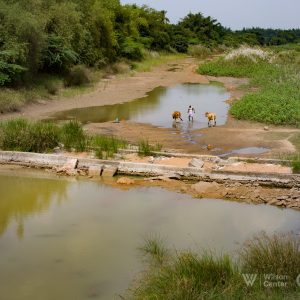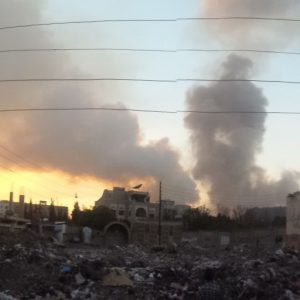The Stream, April 20: Detroit Begins Another Round of Water Shutoffs
The Global Rundown
Nearly 18,000 households in Detroit — 25 percent fewer than last year — are behind on their water bills and risk having water service shut off if they do not negotiate a payment plan. Kenyan farmers work to protect wetlands during a harsh drought that southern Ethiopian herders say is unlike any in memory. Villagers in Nepal accuse an illegal mining operation of drying up water sources. Global temperatures last month were the second highest on record for March.
“We call this drought sima. It means ‘everyone is affected’. Even when I was a child, no one spoke of a drought like this one.” — Abdu Karim, an 82-year-old herder in southern Ethiopia, speaking about the region’s devastating three-year drought. Having collectively lost an estimated $US 200 million worth of livestock, herders like Karim are increasingly reliant on government and international aid. IRIN News
By The Numbers
17,995: Households in Detroit that are behind in paying their water bills and could have service shut off starting this week. The water department director said that residents were given 10 days advance notice and have the option of negotiating a repayment plan. He expects 90 percent of those eligible for shutoffs to do so and maintain water service. Detroit Free Press
In context: Average monthly household water use and average monthly bills for 30 large U.S. cities
Science, Studies, And Reports
The average March land and ocean temperature was 1.89 degrees Fahrenheit above the 20th century average for the month. It was the second warmest March in the 138-year record. NOAA
On The Radar
Following the country’s first national wetlands management policy, finalized in February, Kenyan officials and non-governmental partners are working with farmers and herders to protect the shallow water bodies during a harsh drought. They are planting species such as bamboo to prevent erosion and promoting eco-tourism to diversify farm incomes. Reuters
Villagers in eastern Nepal accused illegal stone mining operations of drying up water sources. Municipal authorities acknowledged that citizens requested that the mines be closed, but they have not yet acted. Kathmandu Post
Brett writes about agriculture, energy, infrastructure, and the politics and economics of water in the United States. He also writes the Federal Water Tap, Circle of Blue’s weekly digest of U.S. government water news. He is the winner of two Society of Environmental Journalists reporting awards, one of the top honors in American environmental journalism: first place for explanatory reporting for a series on septic system pollution in the United States(2016) and third place for beat reporting in a small market (2014). He received the Sierra Club’s Distinguished Service Award in 2018. Brett lives in Seattle, where he hikes the mountains and bakes pies. Contact Brett Walton




